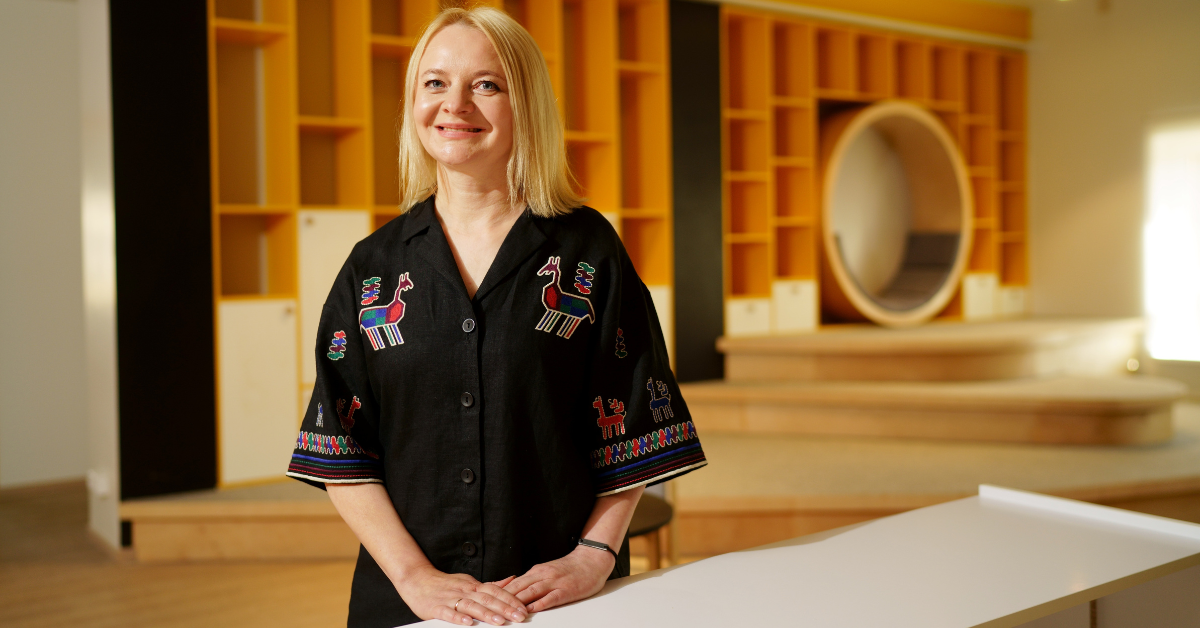In the words of Nataliia Onipko: “Local women’s organizations are the ears and eyes of the humanitarian response to Ukraine’s crisis.”
Date:

Nataliia Onipko is the Founder and President of the Zaporuka Foundation that helps children with cancer and their families. Since Russia’s full-scale invasion of Ukraine, the Foundation has expanded its operations to provide humanitarian assistance to vulnerable internally displaced people, including women, and their host communities. With support from UN Women and funding from the UN Women’s Peace and Humanitarian Fund (WPHF), the foundation has lunched "We Can Do It" Project to support an inclusive and gender-responsive humanitarian response to the Ukraine crisis through the strengthening the capacities of local women-led organizations and their meaningful participation in the humanitarian response.
“Since its launch 15 years ago, Zaporuka been working to help children with cancer and their families. When Russia invaded Ukraine in March 2022, we realized the importance of responding rapidly to emergencies, especially the evacuation of children with cancer and their families. Thanks to our partnerships with local organizations, we managed not only to evacuate these children and their families in a matter of days, but also to provide them with proper shelter and treatment in these difficult times. We have also intensified our support to hospitals and provided them with medicines, supplies and equipment so that they continue to care for children with cancer without interruption. Over the past six months, we have helped 700 children in the 16 hospitals that we support across Ukraine.
To respond to the different needs generated by the crisis, we have expanded our operations to provide comprehensive and multisectoral assistance to internally displaced persons, including through the rehabilitation of old buildings and creating new facilities to shelter them in Lviv Oblast. Aware of the importance of social cohesion in times of crisis, we have provided humanitarian assistance also to host communities that shelter IDPs in Kyiv, Cherkasy, Poltava, Vinnytsia and Lviv regions. To address the mounting needs for mental support among those impacted by the invasion, we launched a free psychological support hotline. Since then, our 20 specialists have provided over 6000 consultations to those in need, 70% of whom were women.
None of this would have been possible without our strong local partnerships. This is why we cooperate very closely with community-based civil society organizations, including women’s groups, in the different regions. Instead of forming a team from scratch in each locality, we join forces with organizations that are already operating there to respond more efficiently and effectively to communities’ needs. We firmly believe the shorter the distance between those in need and those who can address those needs is, the more effectively the available resources can be used.
The role of women’s organizations is essential to determine humanitarian priorities. Even before the war, women in Ukraine were very active in civil society, and their engagement has only grown stronger since the invasion. Being part of the community, they have the legitimacy and trust among vulnerable groups such as women who are more likely to seek psychosocial support and help from a local women-led center or shelter than larger organizations. Indeed, women’s groups serve as our eyes and ears in the community, allowing us to see problems and hear voices that we otherwise wouldn’t see or hear. As such, they should be at the heart of our efforts to respond to the humanitarian crisis.”